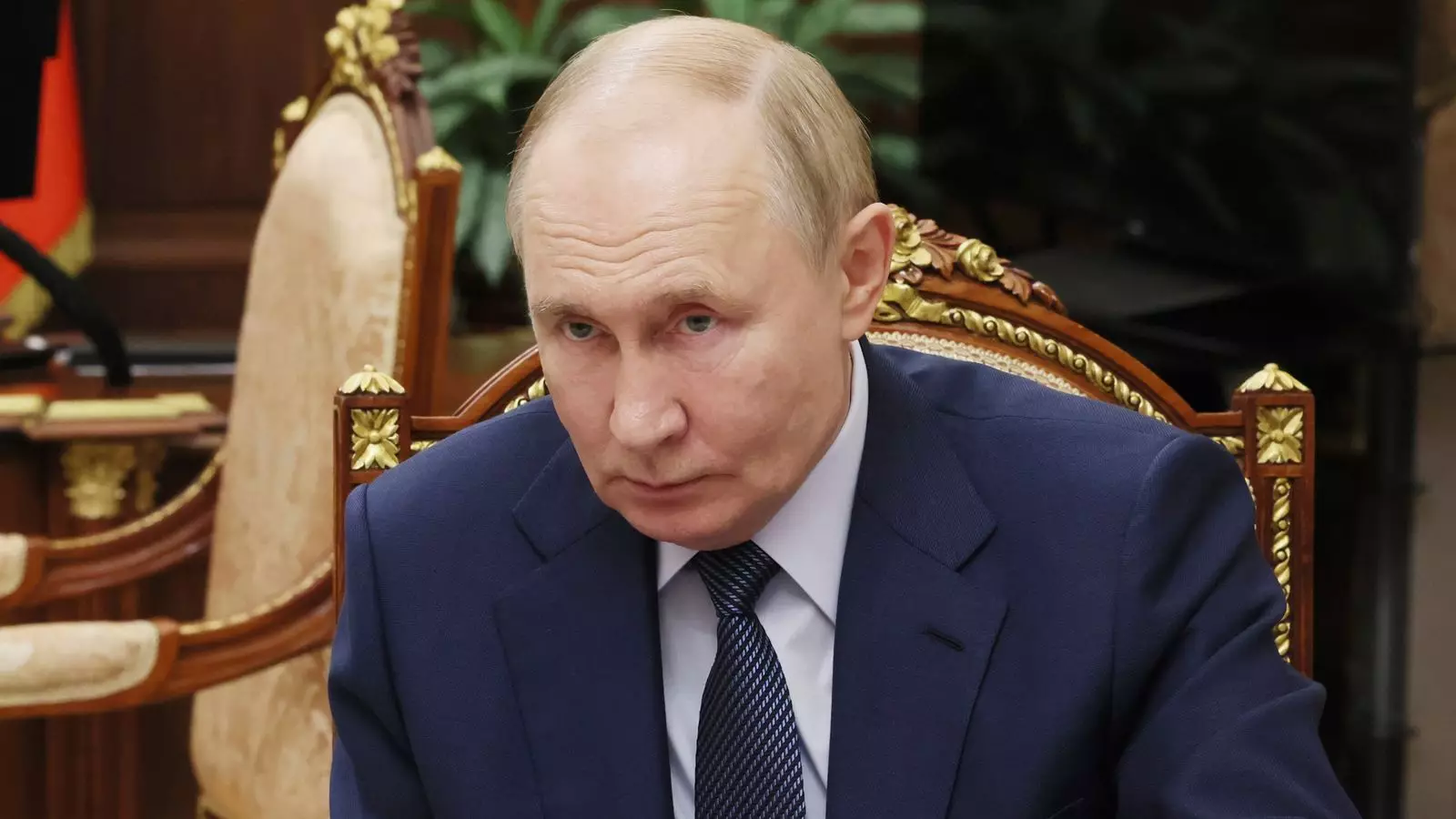As the world marks the somber third anniversary of Putin’s invasion of Ukraine, the United Kingdom has taken decisive action against Russian oligarchs closely associated with the Kremlin. In a bid to curb the influence of these elites, the UK government has unveiled a robust sanctions package that includes the prohibition of entry for individuals who are deemed to have significantly aided the Russian state. This strategic move underscores a continued commitment to countering not just the military aggression of Russia, but also its financial networks that sustain this aggression.
The latest sanctions come with precise criteria. Individuals who provide “significant support” to the Kremlin, those whose fortunes are derived from their ties to the Russian state, and those with privileged access to the highest echelons of power in Moscow will now find themselves susceptible to bans from the UK. This decisive action reinforces the message that the UK government is not just concerned with military threats, but also with the political and economic machinations that underpin those threats.
Security Minister Dan Jarvis articulated a clear stance, defending these measures as essential for national security. He stated that the oligarchs, who have benefitted from the misery of their compatriots, will find no welcome in the UK. This sentiment resonates amidst a growing sense of urgency regarding border security, which has become a cornerstone of national safety in the wake of geopolitical tensions.
Kremlin Influence and Public Perception
The UK government identified a duality in the behavior of Kremlin-linked elites: openly criticizing British values while privately enjoying the benefits of living in the UK. This duplicity highlights the inherent contradictions faced by nations hosting individuals who actively work against their interests. By categorizing these elites as “tools” of the Russian state, the government emphasizes the real dangers posed by their presence. Such individuals not only support the Kremlin’s ambitions but also maintain networks that could potentially undermine democratic norms and values in the West.
This is not the first time the UK has moved against Russian wealth. In the immediate aftermath of the war’s onset in February 2022, the UK implemented a series of financial sanctions targeting oligarchs. These sanctions aimed to close loopholes exploited for money laundering, a significant issue for many nations, particularly as they seek to isolate Russia from global financial systems.
Operation Destabilise, led by the National Crime Agency (NCA), illustrates the proactive steps being taken against Russian money laundering networks. The operation successfully disrupted significant operations, leading to numerous arrests and a seizure of illicit funds. These efforts highlight a coordinated approach to tackle financial crimes that benefit the Kremlin, suggesting a broader strategy at work to dismantle systemic support for Russian aggression.
The unfolding situation extends beyond sanctions. As international discussions continue regarding the future of Ukraine, the absence of Ukrainian representatives in critical negotiations raises concerns about the sovereignty and agency of the nation in question. This situation emphasizes the necessity for the UK and its allies to not only impose sanctions but also support Ukraine’s voice in international forums.
The backing of key political figures, including British opposition leader Sir Keir Starmer, adds political weight to the commitment of ensuring that Ukraine plays an active role in shaping discussions about its future. As the UK government’s sanctions take effect, attention will focus on broader geopolitical ramifications, particularly how these measures influence negotiations and the ongoing conflict.
The UK’s latest sanctions against Kremlin-linked oligarchs represent a significant step in an ongoing battle to combat Russian influence. By clearly signaling that those who derive wealth and status from oppressive regimes will not find refuge in the UK, the government reiterates its commitment to national security and upholding democratic values. The long-term effectiveness of these measures, however, will depend on a sustained international effort and the resilience of global coalitions in the face of authoritarian aggression. Moving forward, close scrutiny of the implications and outcomes of these sanctions will be essential as the world grapples with the realities of geopolitical strife.



Leave a Reply